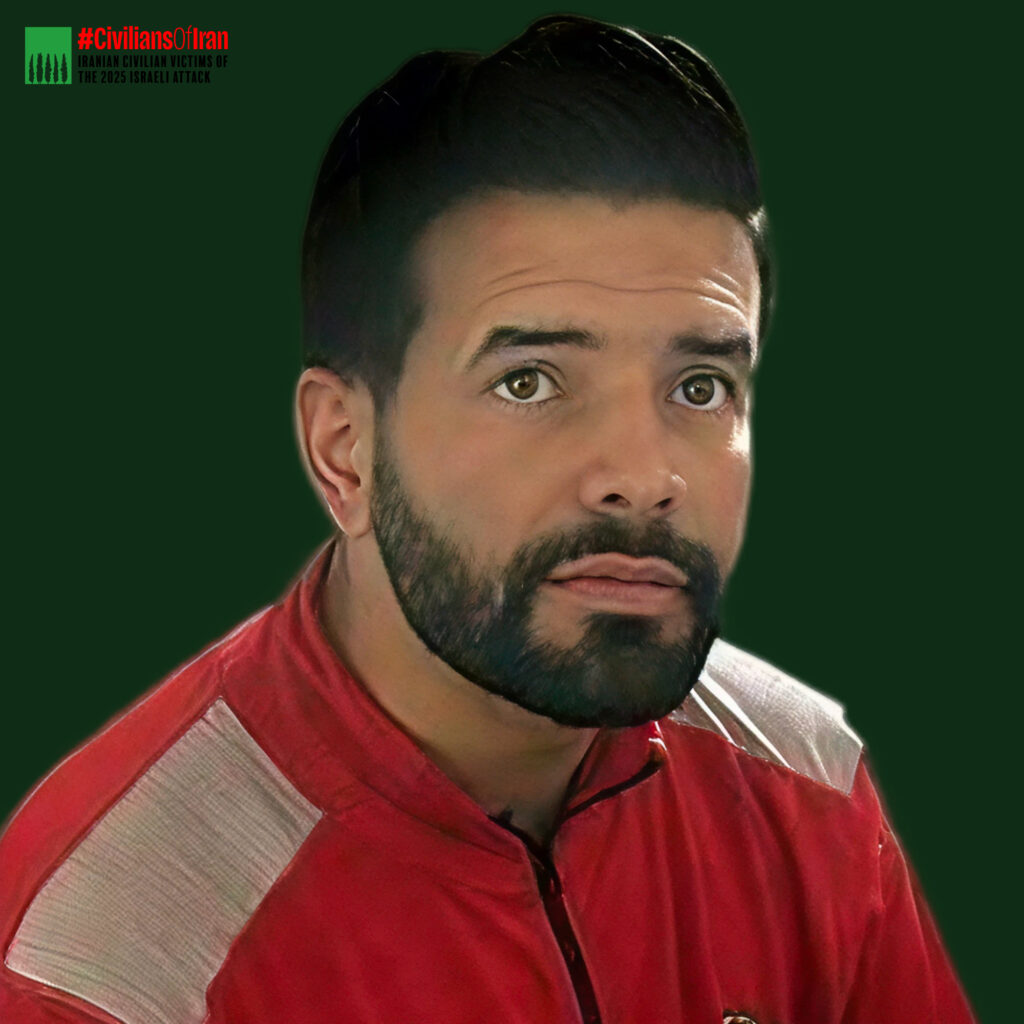Mojtaba Maleki: The Red Crescent aid worker Killed in an Ambulance Attack
Mojtaba Maleki was a Red Crescent paramedic in Tehran, a man of calm strength, deep empathy, and unwavering commitment to others. He had just turned 30 in the previous winter, and he and his wife were slowly preparing to expand their two-person world and start a family. But war tore through their plans. On June 16, 2025, during the final days of spring, Mojtaba was killed in the Chitgar neighborhood of Tehran while doing the work he had dedicated half his life to: helping the injured in moments of crisis.
He was one of four Red Crescent aid workers dispatched that day to respond to a series of explosions following Israeli drone strikes on Tehran. The team was stationed near an emergency response post in Chitgar. According to one of his teammates, the medics had just stepped out of the ambulance to assist the wounded when Mojtaba heard a drone approaching. “Get down!” he shouted. The others dropped to the ground, but Mojtaba didn’t have enough time. A moment later, the drone struck. When his team reached him, he was already gone.
His death came swiftly, but his life had been a long, steady commitment to saving others. Mojtaba’s journey began early. At 14, after moving with his family to Natanz, he was inspired by his older brother to join the Red Crescent as a volunteer. He quickly stood out, not just for his skill, but for his seriousness. Before turning 16, he passed one of the Red Crescent’s most demanding exams in Isfahan province and was awarded the rare and respected Sacrifice rank, a distinction usually granted to much older and more experienced volunteers.
Even after being accepted into an electronic engineering program and starting university, he remained fully dedicated to his work with the Red Crescent. His father recalled: “Helping people was his top priority. It didn’t matter what their background was — beliefs, politics — none of that mattered to Mojtaba. What mattered was that someone needed help.”
Alongside his Red Crescent aid work,, Mojtaba was also an accomplished mountain guide, known especially around Mount Karkas in Isfahan province. He led both local and foreign teams through difficult climbs, in harsh weather, and was often praised for his patience and group spirit. He had recently started making solo ascents as well — a sign of both his skill and his discipline. “In the mountains,” one climber once said, “his calm was like an anchor.”
That calm was just as present at home. Though not the eldest son, he was the peacemaker in the family, the one who could ease tensions and bring people together. “Even in the hardest moments,” his father said, “he had the gift of making people feel safe.” His mother echoed that same feeling: “Of course, every mother is proud of her child. But what I say is not just from a mother’s heart. I say it as a human being who witnessed another rare soul. Mojtaba was exceptional as a son, as a husband, as a neighbor, as a friend.”
In the days leading up to the attack, as tensions escalated and Israeli strikes became more frequent, a close friend urged Mojtaba to leave Tehran. “Come with me to the north,” the friend said. “Just until things settle down.” But Mojtaba got upset. “Is this how you see me?” he replied. “If there’s a day people like me are needed, it’s today.”
And so, when the call came to report to Chitgar, he went without hesitation. He knew it was dangerous. Everyone did, but he didn’t flinch. One of his coworkers who survived the drone strike later recalled: “After the blast wave hit, I was thrown across the ground. When I came to, I thought I was dying. I saw my body soaked in blood. But then I realized it wasn’t mine. Mojtaba had fallen.”


